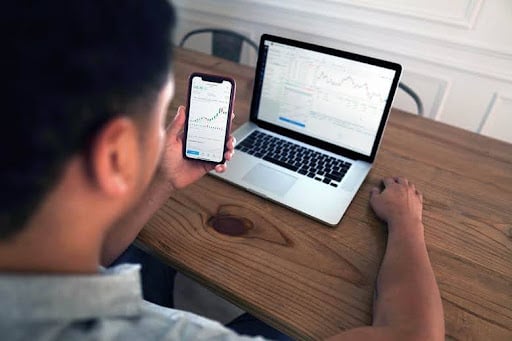Trading forex can seem exciting and potentially lucrative, yet beginners often face anxiety due to the associated financial risks. This anxiety is especially pronounced among new traders in Nigeria, where forex trading has become increasingly popular. However, by adopting a carefully structured, low-risk plan from practising on demo accounts to trading micro lots, traders can minimise risks while learning essential trading skills.
Understanding exactly how to start forex trading in Nigeria is crucial for those who want to achieve success without substantial financial exposure. With disciplined planning and patience, new traders in Nigeria can gradually transition from practising strategies to confidently trading live micro lots.
Begin with a Forex Demo Account
Before you even think about investing real money, a forex demo account is the safest place to start. Demo accounts allow Nigerian traders to familiarise themselves with trading platforms, understand market movements, and practice strategies without risking actual funds. Major trading platforms available in Nigeria, like HFM and others, provide free demo accounts with virtual currency, enabling beginners to learn at their own pace and without pressure.
Typically, a trader should spend at least 1–3 months practising extensively on a demo account. This provides enough time to grasp trading fundamentals, including technical analysis, fundamental analysis, and risk management strategies.
Define Clear Trading Objectives
Once familiar with the demo account environment, the next crucial step is setting clear trading objectives. Nigerian traders often underestimate the importance of clearly defined goals. Your objectives should include deciding the maximum amount you’re willing to risk per trade (ideally not more than 1–2% of your trading capital), your profit targets, and clear criteria for entering and exiting trades. Setting these objectives early helps you remain disciplined and avoid impulsive decisions that could lead to significant losses later on.
Develop and Test a Solid Trading Strategy
Developing a robust trading strategy is key to success in forex trading. Nigerian traders should prioritise learning and testing strategies such as price action trading, swing trading, or trend following. Whatever strategy you choose, ensure it aligns well with your trading style and your risk tolerance.
After crafting your strategy, apply it rigorously on your demo account, ideally for several weeks or months, carefully documenting each trade and analysing your results to refine the approach further. This iterative process builds confidence, ensuring you understand how your strategy performs across different market scenarios common in Nigeria’s dynamic forex environment.
Transition Gradually into Micro Lot Trading
When you’re consistently profitable on your demo account, it is time to transition to live trading using micro lots. Micro lots—usually representing 1,000 currency units—are the smallest trade size available and allow traders in Nigeria to risk very little real money while still experiencing genuine market conditions.
Trading micro lots allows you to:
- Test emotional and psychological responses in real trading conditions.
- Gain experience with the reality of market execution and liquidity.
- Continue refining your strategies under conditions that closely mimic higher-stakes trading, but at significantly lower risk.
Importance of Risk Management
Effective risk management is essential when transitioning from demo to micro lot trading. Many Nigerian beginners often overlook the role of proper risk management, yet it remains the single most critical factor determining a trader’s longevity in the forex market. Always set stop-loss orders to protect your capital from unexpected market volatility. It’s also crucial to adhere strictly to your initial risk limits set at the beginning of your trading journey.
By maintaining strict control over your risk, you ensure that no single bad trade can significantly damage your trading account, thus securing your capital for future opportunities.
Continuously Evaluate and Adapt Your Trading Plan
Forex markets are dynamic, continuously influenced by global and domestic Nigerian economic news, events, and geopolitical shifts. Nigerian traders must stay adaptable and ready to adjust their strategies accordingly. Regularly reviewing your trading journal and performance can reveal insights into improving your trading practices.
Always consider external factors unique to Nigeria’s economic environment, such as oil price fluctuations, inflation rates, and monetary policies from the Central Bank of Nigeria, as these factors significantly affect the forex market’s behaviour and opportunities for local traders.
Educate Yourself Regularly and Consistently
Finally, never underestimate the value of ongoing forex education. The forex landscape continually evolves, requiring traders in Nigeria to stay updated through consistent learning. Make regular use of reputable educational resources and materials, online trading communities, webinars, and seminars provided by trusted brokers like HFM.
Continuous learning will sharpen your analytical skills, enhance decision-making abilities, and help you stay informed about the latest trends and strategies, ultimately leading to sustained success and reduced risks in your trading endeavours.
By following these clear, structured steps, from demo account practice to cautious micro-lot trading, traders in Nigeria can confidently build and maintain a low-risk trading approach, laying a strong foundation for future success in forex trading.






